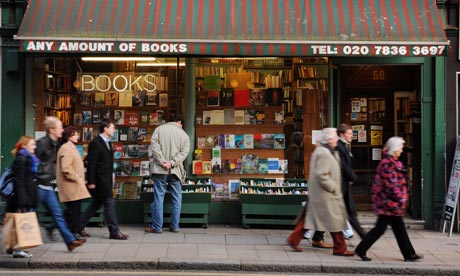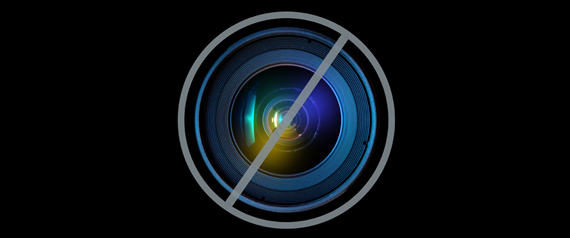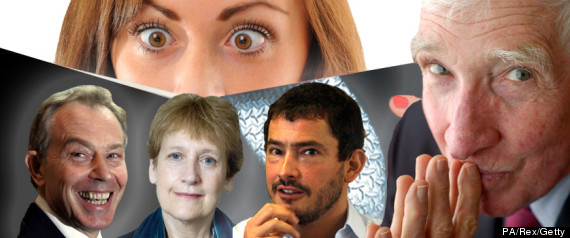Women’s fiction writer Jennifer Weiner always seems to have a story to share. She has wielded her pen to write ten books,
speak out about gender balance in
The New York Times‘ fiction coverage and live-tweet episodes of
The Bachelor.
Drawing from the experiences of
working as the executive producer/screenwriter on the ABC Family TV show
State of Georgia, Weiner (pictured) presents her latest novel
The Next Best Thing. It features dramatic characters, a Hollywood dream and an inside look into the Los Angeles show business culture.
We caught up with Weiner to pick her brain for social media tips, advice on connecting with readers on her blog and how to write about controversial issues.
The highlights follow below…
Q: Do you have any tips on how writers can use social media to connect with readers?A: (1) Be yourself. I know that sounds trite, but that’s really the only thing I can tell you that will help. Don’t try to sound like
Colson Whitehead or
Neil Gaiman or
Judy Blume; just be yourself.
(2) Talk to readers! Thank them for reading your books, re-tweet observations they make.
(3) Make connections. One of the joys of social media has been that it’s given me ‘people’ again – a virtual water cooler where I can hang out and discuss
The Bachelor, or the book I can’t wait to read this fall (
Jami Attenberg’s
The Middlesteins, in case you were wondering).
(4) Pay attention. Look at the authors who are doing it well, and figure out what’s making it work. How often do they tweet? What’s it about?
(5) Finally, give. Give recommendations, tell jokes, talk about a great new restaurant you found or recipe you tried.
Q: How should authors use their blogs? Is it all about promoting the book? Where do you draw the line on sharing personal life details?A: Obviously, there’s a promotional element to any kind of social-media presence an author has but it should NEVER be just, ‘Hi! It’s me! Buy my book!’ You have to give people something of value, whether it’s your funny take on reality TV, or recipes, or stories about your life, or your family vacation, or your garden whatever. If all you’re doing is shilling, not only will you not sell your book, you will actually and actively drive readers away.
I’m really lucky. Before I was a novelist, I was a journalist. I loved writing every day, and I loved the immediacy of the interaction that newspapers provided. When you had something to say, you could say it in the paper, the very next day, whereas with novels, any smart observations had to wait until the next book came out. Social media gives me that immediacy, that chance to talk to people again, and comment on the issues of the day when they happen, not weeks or months or years later.
That being said, every writer has to decide for herself where the line is about her personal life. I have very consciously decided that there are just places I won’t go: no pictures of my kids or my house, no talk about my personal life. I’ll tell the occasional anecdote about one of my daughters, or my incredibly cute and unbelievably gassy dog Moochie, but that’s it. I don’t check in on Foursquare, I don’t tweet about pouring my morning coffee, and I don’t post pictures of my kids holding copies of my books.
For me, what feels best is talking about what I’m watching, and what I’m reading. I love reading a great book –
Liz Moore’s
Heft and
Jillian Medoff’s
I Couldn’t Love You More or
Sarah Pekkanen’s
These Girls – and then using social media to tell the world about them. Every writer has to find what feels best for her, then go with it and if all of social media feels awful, then just stay away (even if your publisher tells you that you need to). Readers can smell insincerity and obligation. They know when you’re just tweeting because your editor told you to tweet. Better silence than that kind of forced engagement.
Q: You tackle a lot of controversial subjects in your novels from society’s views on female obesity to philandering politicians to female fertility/childbearing in the 21st century; what’s the best way to tackle a controversial subject when writing your stories?A: I don’t want to write message books, where readers come away feeling like they’ve spent four hundred pages being whomped over the head with my beliefs. But I want to write stories that engage with the way we live now, which means a certain amount of topicality. My advice is, characters first, issues second. If you’ve built a hero or a heroine who is interesting enough for readers to want to spend hours in his or her company, then you can have your protagonist dealing with the issue of the day but if you start with the issue, and then turn to your character, you’ll end up with a preachy – and, probably boring – book.
Q: You also tackle a lot of controversial subjects in real life. Can you talk about your experiences in trying to speak out about gender balance in The New York Times fiction review coverage?A: It’s funny – part of me wishes I was wired differently; that I could notice unfairness and imbalance and just think, ‘Hey, people buy my books, what do I care? Why should I care what people call them, why does it matter that the
New York Times ignores them? I got mines!’
But that’s not the way I’m built. Some of it’s my childhood, and my parents, who came of age in the sixties and were going to change the world, via the power of
Pete Seeger folk songs and
Free to Be You and Me. Some of it’s what the brilliant
Laura Zigman calls ‘hurt writer-feelings.’ Writers are sensitive types, and being neglected by the paper you grew up reading is a hard thing to ignore.
Some of the response is predictably silly – there are people who believe that once you’re on the bestseller list you’ve forfeited your right to complain about anything, or even point out when things are unfair. Some of it is really painful, like when a quote-unquote ‘literary’ lady writer says that the only reason I care about the issue of who the Times reviews and profiles, and how frequently, and in which section, is because of the way they’ve treated me (which, of course, is absurd – if all I cared about was getting a
Times review for myself, wouldn’t I spend all my time praising the paper, instead of pointing out what it does wrong?)
But it’s like
Gandhi said. ‘First they ignore you, then they laugh at you, then they fight you, then you win.’ I think that women who’ve spoken out about issues of gender equity at places like the
Times and
NPR have been ignored. God knows we’ve been belittled. I think now we’re in the fighting stage. I hope that, someday, we’ll win. I hope that if either of my daughters is a writer, she won’t have to jump through an extra, female-specific set of hoops to prove that what she’s written is worthy of serious consideration, even if – especially if – it deals with romance, and friendship, and family, and maybe even shoes.
Q: TV scripts and women’s fiction novels seem like two different animals; how did working in television writing influence your novel writing? And vice versa?A: Before I was a novelist, I was a journalist. I spent ten years in newsrooms, so, in many ways, being in a writers’ room in LA felt like coming home. Spending eight months in Hollywood getting a show up and running – and then watching it go down hard – was a rough experience, but it gave me great stories to tell (true story: I had to cast a goat. Turns out, in Hollywood, goats have head shots. And reels.) And I think that all my years as a novelist gave me a strong sense of voice and character, of how to use words on a page to bring someone to life.
Q: What’s next for you?A: Another good question! Right now I’m gearing up for the ‘Cupcakes Across America’ tour and wondering which guy
Emily on
The Bachelorette is going to wind up with.
 When we came across this photo of Steve Martin reading about Bob Dylan, we had a serious celebs-they’re-just-like-us moment. After all, you’d think that biographies of cultural heroes are for us plebs, who would thrill at descriptions of fame, stardom, and emotional breakdowns. Okay, we’re overstating it a little, but still. Turns out, celebrities are just as fascinated with each other as we are with them — especially the rock stars — and we think it’s very enlightening to see which of our cultural icons are fascinated by which. Click through to check out our gallery of photos of celebs reading books about other celebs, and if you’ve spotted another good one, be sure to let us know in the comments!
When we came across this photo of Steve Martin reading about Bob Dylan, we had a serious celebs-they’re-just-like-us moment. After all, you’d think that biographies of cultural heroes are for us plebs, who would thrill at descriptions of fame, stardom, and emotional breakdowns. Okay, we’re overstating it a little, but still. Turns out, celebrities are just as fascinated with each other as we are with them — especially the rock stars — and we think it’s very enlightening to see which of our cultural icons are fascinated by which. Click through to check out our gallery of photos of celebs reading books about other celebs, and if you’ve spotted another good one, be sure to let us know in the comments!





























